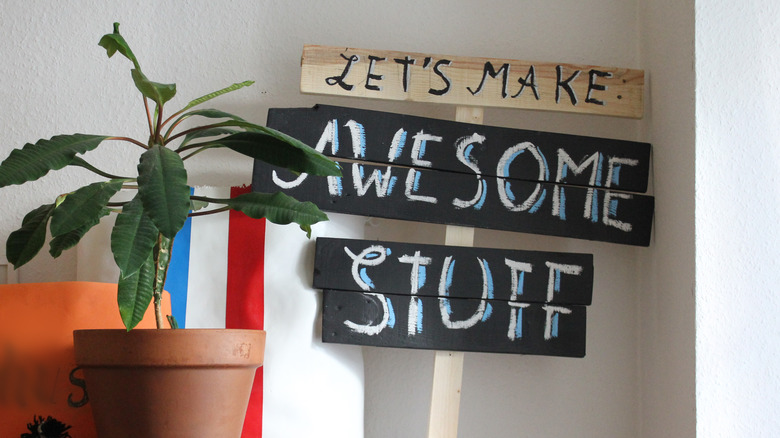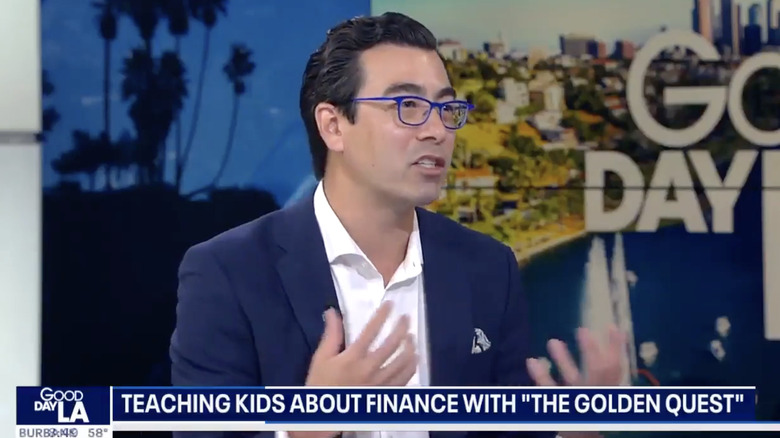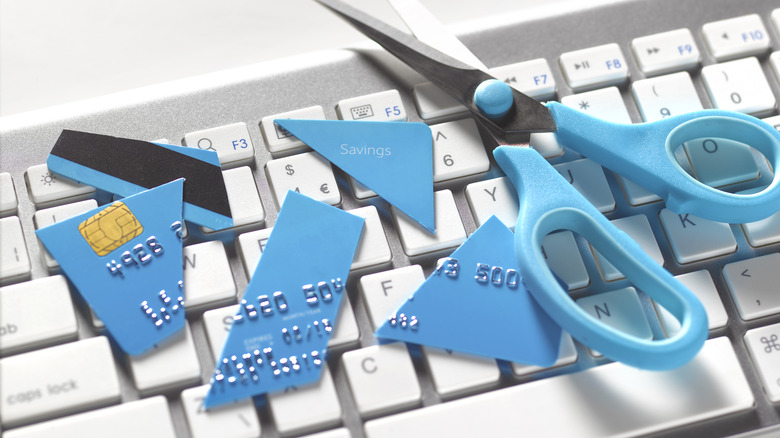The Awesome Stuff Movement May Be The Answer To Your Budgetary Problems In 2025
We may receive a commission on purchases made from links.
If you've ever wondered how much Americans spend on Christmas, that figure was estimated to be about $947 each in 2023. In fact, a full 42% of consumers expect to spend more than $150 on holiday decorations alone in 2024. There are countless recommendations on how to keep you holiday budget under control and avoid entering the new year under a big pile of credit card debt and discarded gift wrap. But that's only a small portion of the year. Developing responsible spending habits and exhibiting fiscal restraint are traits that financially successful types exhibit constantly.
Some tried and true budgeting techniques include the 50/30/20 rule and zero-based budgeting, both of which Money Digest has discussed in the past. But what if you have trouble sticking to a traditional, boring budgeting plan? Instead, you might consider the Awesome Stuff Movement.
Personal-finance television commentator and speaker David Delisle, ironically, isn't a big proponent of budgeting. Instead, he recommends that consumers "focus on the Awesome Stuff—the gifts and moments that really matter—and the budgeting stress is minimized." Although "awesome stuff" can certainly be material purchases, it's more frequently associated with experiences such as travel, events, or even education.
How you use money is most important
Expounding on the Awesome Stuff Movement, Delisle states, "The Awesome Stuff Movement is all about shifting how we think and feel about money. As a lifelong money nerd, I've realized that our relationship with money has a greater impact on our lives than the actual amount we have."
In comments to Money Digest, Delisle explains how last holiday season, he presented his children with a choice: the children could opt to receive gifts or host a big party for their friends. You can probably guess that Delisle's boys chose the latter. Getting to spend time festively celebrating with their closest friend personified the concept of "choosing what truly brings joy and connection over mindless consumption."
Another example involves around a family who read Delisle's well-reviewed book, "The Golden Quest: Your journey to a richer life," which is also suitable for kids and teens. When asked, the reader's kids said that their idea of "awesome stuff" was a new puppy. To be fair, owning a pet is pretty awesome. In particular, dog and cat ownership can reduce stress, reduce anxiety, and improve cardiovascular health, even though pet ownership has some hidden costs. However, that's not the end of this inspiring anecdote.
'Awesome Stuff' riffs on other budgeting classics
Per Delisle, when the father of the aforementioned family shared his "awesome stuff," it involved the family's mother going back to school to continue her education — something which had always been cost prohibitive. Instantly, the children changed their "awesome stuff" from a new puppy to helping their mother achieve her personal dream.
Once again, "awesome stuff" can definitely be, well, stuff and not just experiences. But you'll want to make sure that whatever you spend your hard earned dollars on is more than just a passing whim. Another example of this philosophy exists with the 24-hour rule, which is waiting out a 24 hour "cooling off" period before purchasing goods to make sure you really, really want the item(s). Yet another trick to buying only "awesome stuff" is don't store your credit card information with an online shop or on your browser. That way, you'll introduce a brief obstacle — getting the physical credit card, then typing in the credentials — to what might otherwise be an impulse purchase.
If joining the "awesome stuff" movement for the holidays and beyond sounds perfect for an easy, passive budgeting technique, take the seven day challenge. That is, "For 7 days, before you buy anything pause and ask yourself, 'Is this the Awesome Stuff?'," recommends Delisle's website. Even better, consider spreading the word to a few friends or family members.


